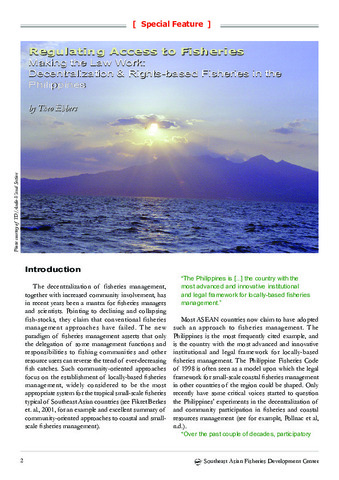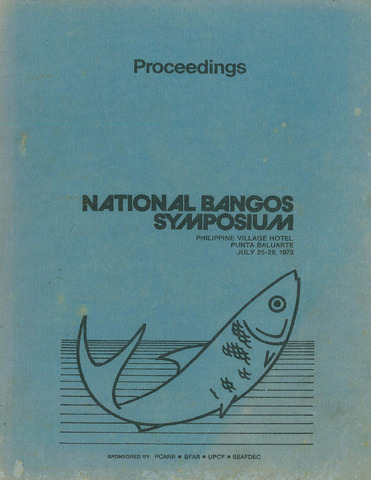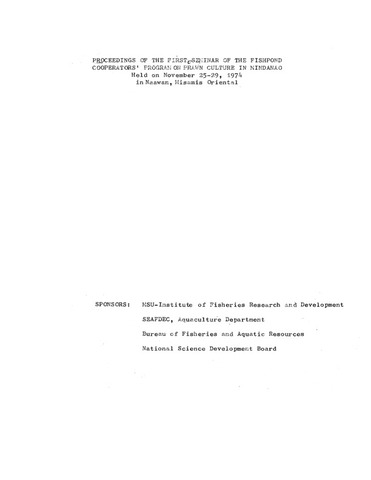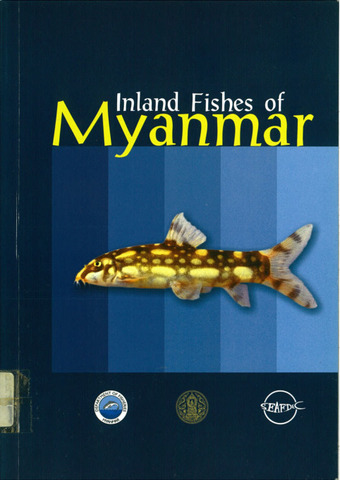Regulating access to fisheries making the law work: Decentralization & rights-based fisheries in the Philippines
Share
นามธรรม
An examination is made of participatory coastal resources management approaches in the Philippines, providing a summary of lessons to be learnt from these experiences. The article is based on both a review of relevant literature and on personal knowledge from working with coastal communities in the Philippines. Particular reference is made to the Philippine Fisheries Code of 1998, which is often seen as a model upon which the legal framework for small-scale coastal fisheries management in other countries of the region could be shaped. The politicization of coastal fisheries management issues represents the biggest threat to the translation of the spirit of the Fisheries Code into sustainable fisheries management practices. However, it also offers coastal fisheries managers and coastal communities the opportunity to advance toward sustainable fisheries management systems at the local level. If they succeed in making coastal fisheries and resources management a priority political issue and can demonstrate to local legislators and decision makers the potential economic, social and therefore political benefits of specific coastal fisheries and resources management measures, the local political establishment is more likely to take the provisions of the Fisheries Code seriously and actually make this law work.
การอ้างอิง
Ebbers, T. (2004). Regulating access to fisheries making the law work: Decentralization & rights-based fisheries in the Philippines. Fish for the People , 2(2), 2-10. http://hdl.handle.net/20.500.12066/689
เรื่อง
คอลเลกชัน
รายการที่เกี่ยวข้อง
แสดงรายการที่เกี่ยวข้องตามชื่อผู้แต่งผู้สร้างและเรื่อง
-
Proceedings of the National Bangos Symposium, Philippine Village Hotel, Punta Baluarte, July 25-28 1975
Philippine Council for Agriculture and Resources Research (PCARR); Bureau of Fisheries and Aquatic Resources; University of the Philippines College of Fisheries; Southeast Asian Fisheries Development Center, Aquaculture Department (1975) -
Proceedings of the First Seminar of the Fishpond Cooperators' Program on Prawn Culture in Mindanao held on November 25-29, 1974 in Naawan, Misamis Oriental
MSU-Institute of Fisheries Research and Development; Southeast Asian Fisheries Development Center, Aquaculture Department; Bureau of Fisheries and Aquatic Resources; National Science Development Board (1974) -
Inland fishes of Myanmar
Vidthayanon, Chavalit; Termvidchakorn, Apichart; Pe, Myint (Secretariat, Southeast Asian Fisheries Development Center, 2005-12)This handbook of some inland fishes in Myanmar was based on a rapid field survey of SEAFDEC supported team and long term observation of the authors on common species and some taxa, obtained from the aquarium trade. We ...





